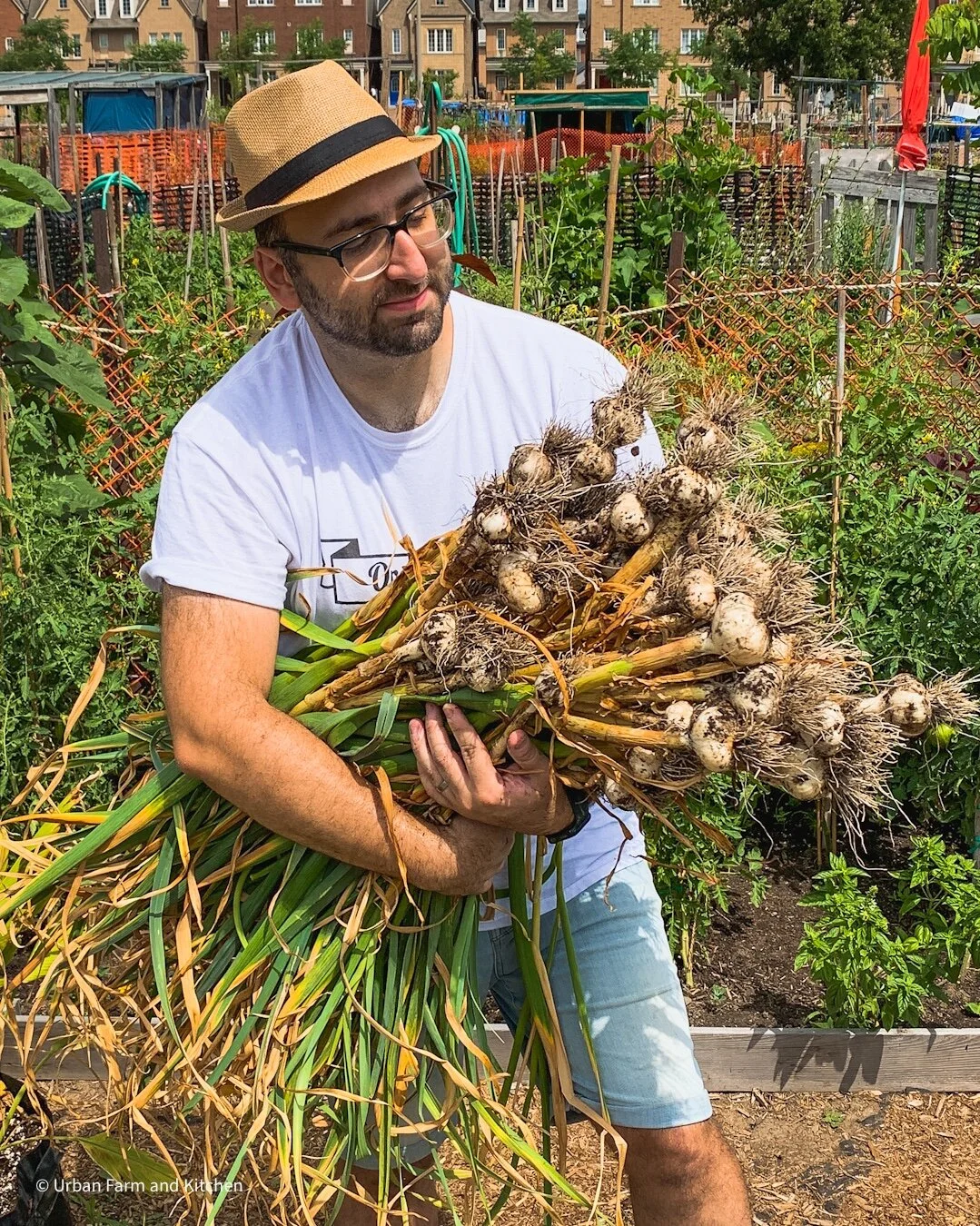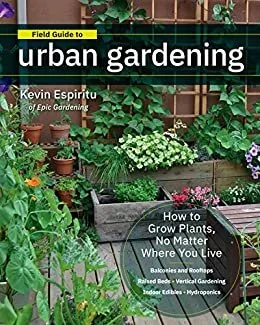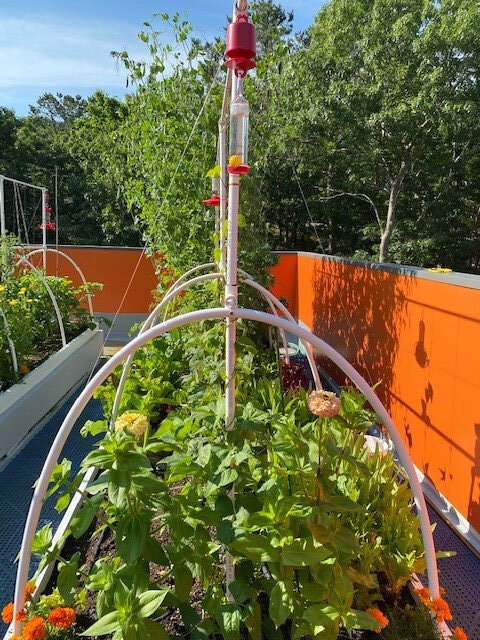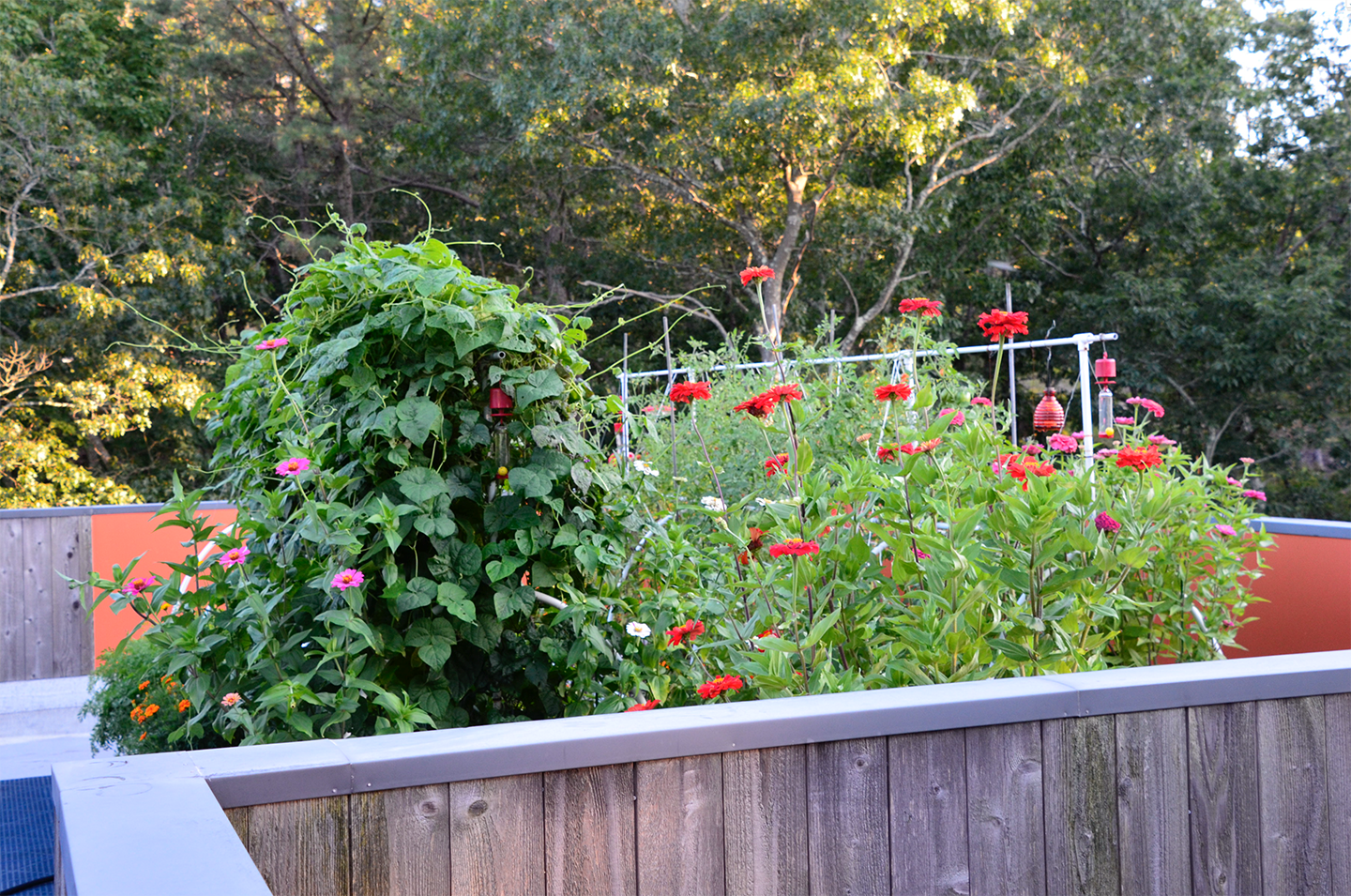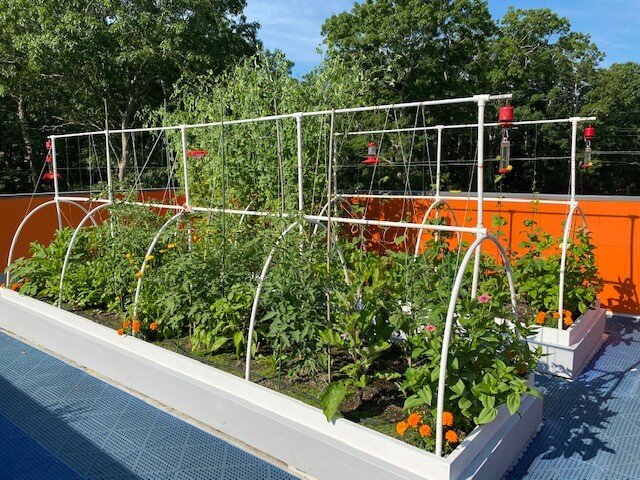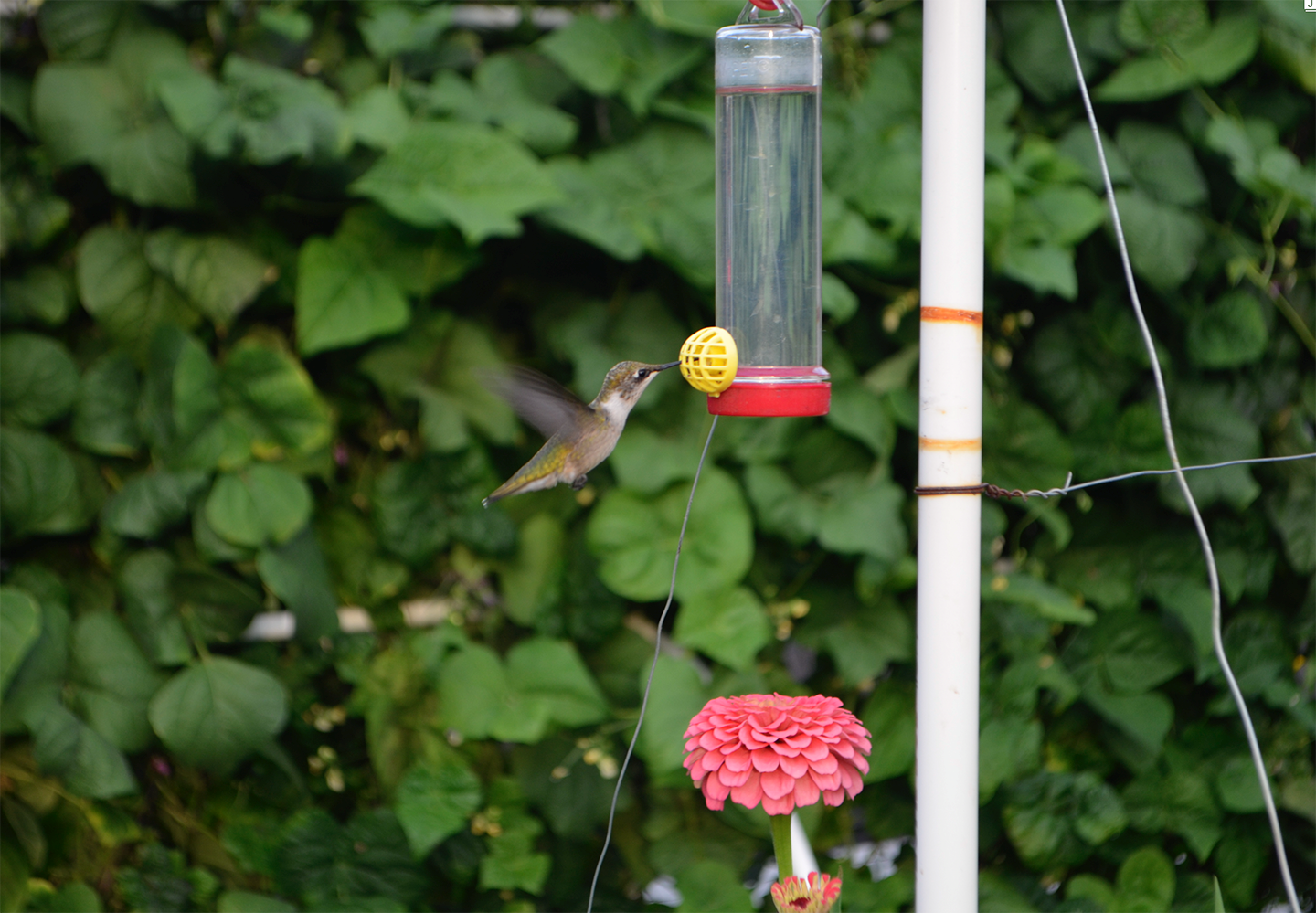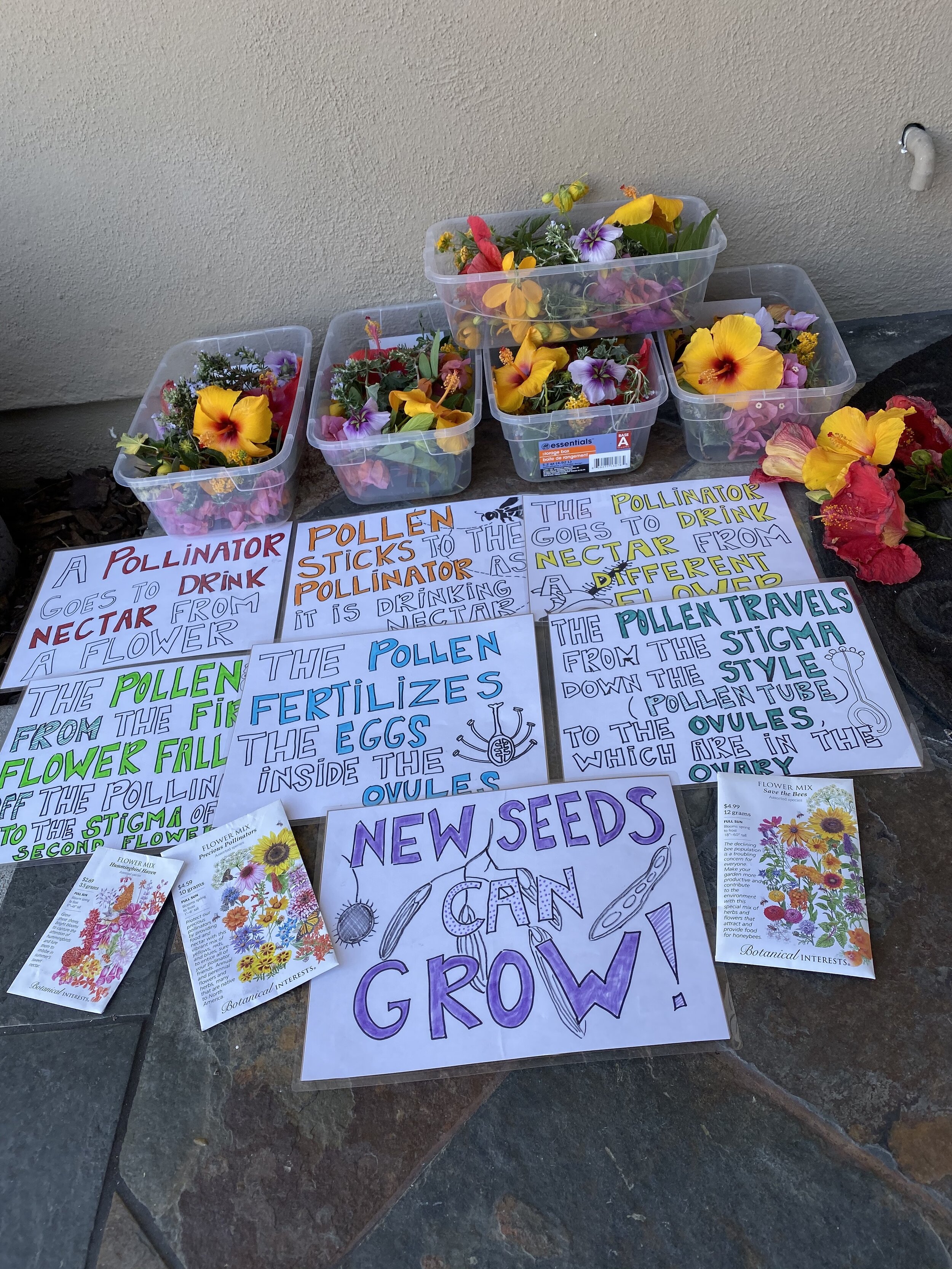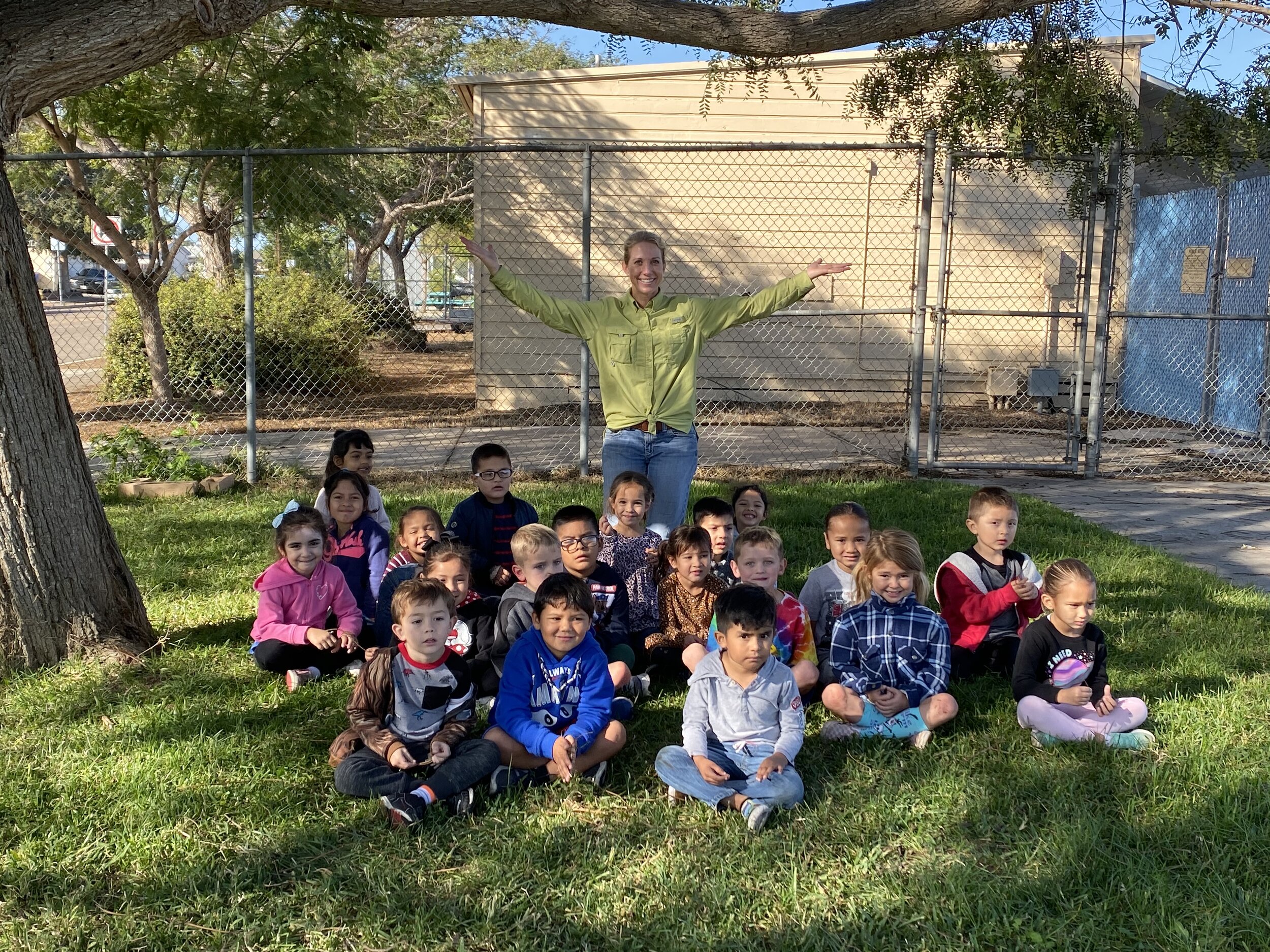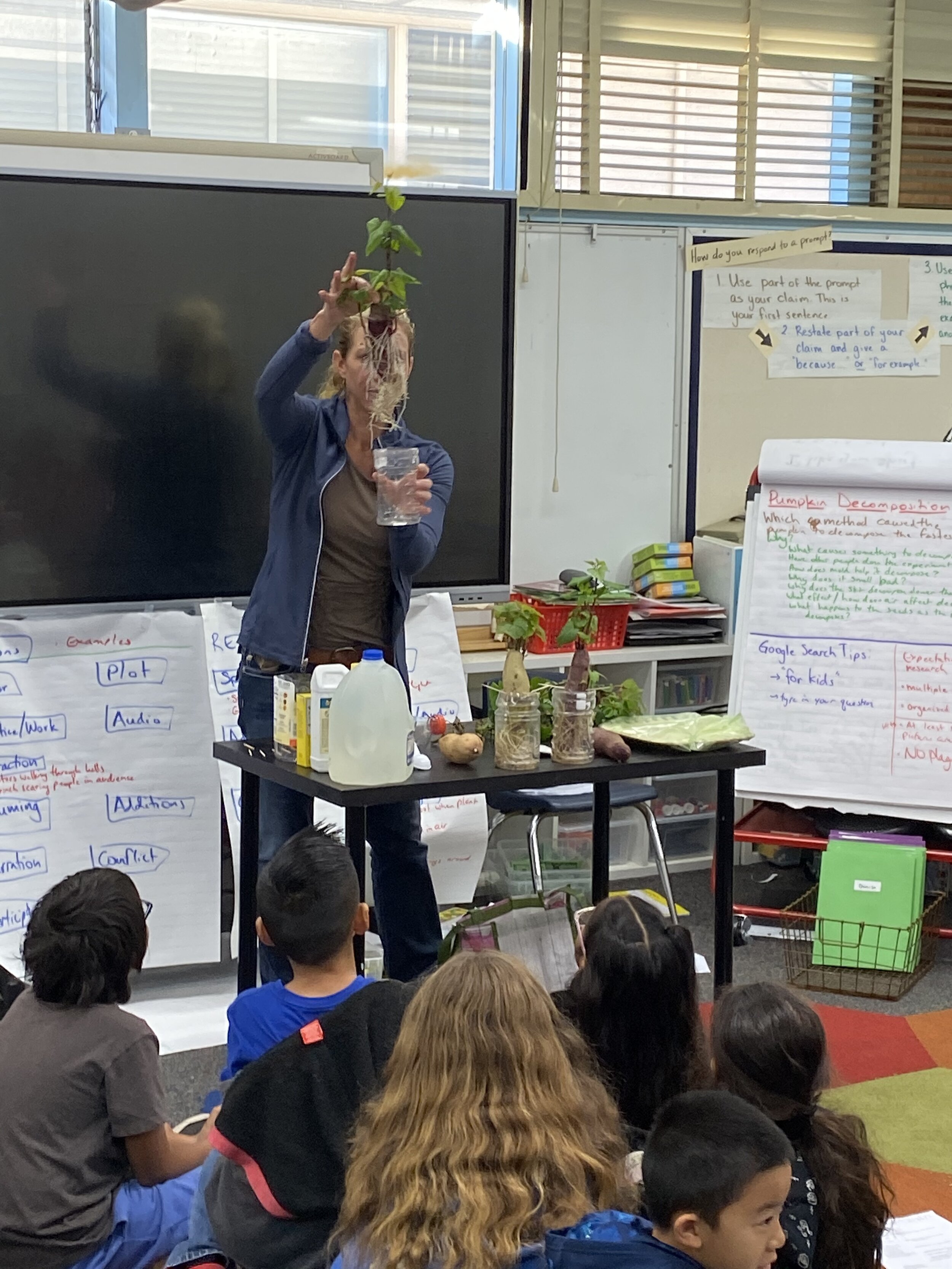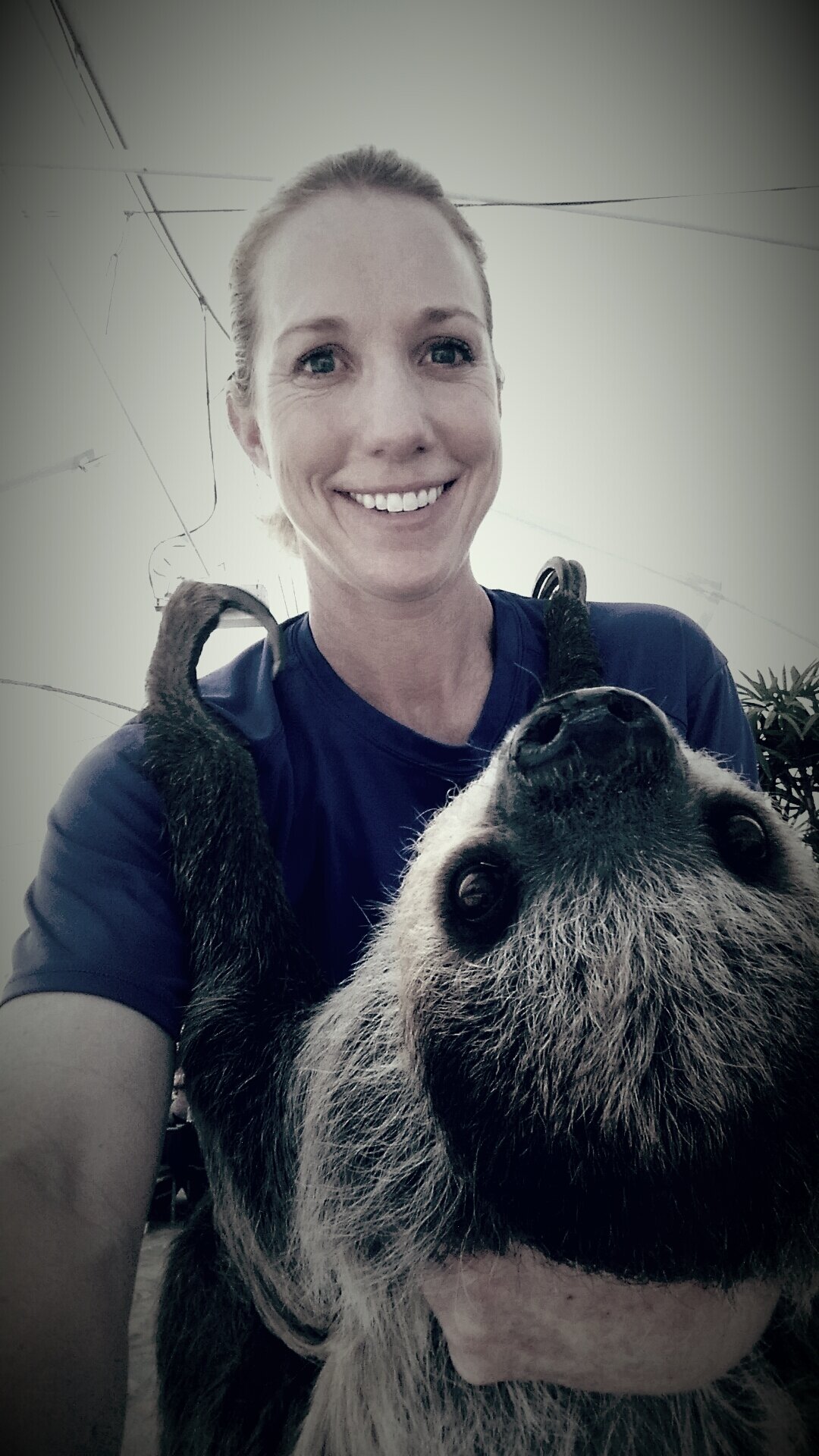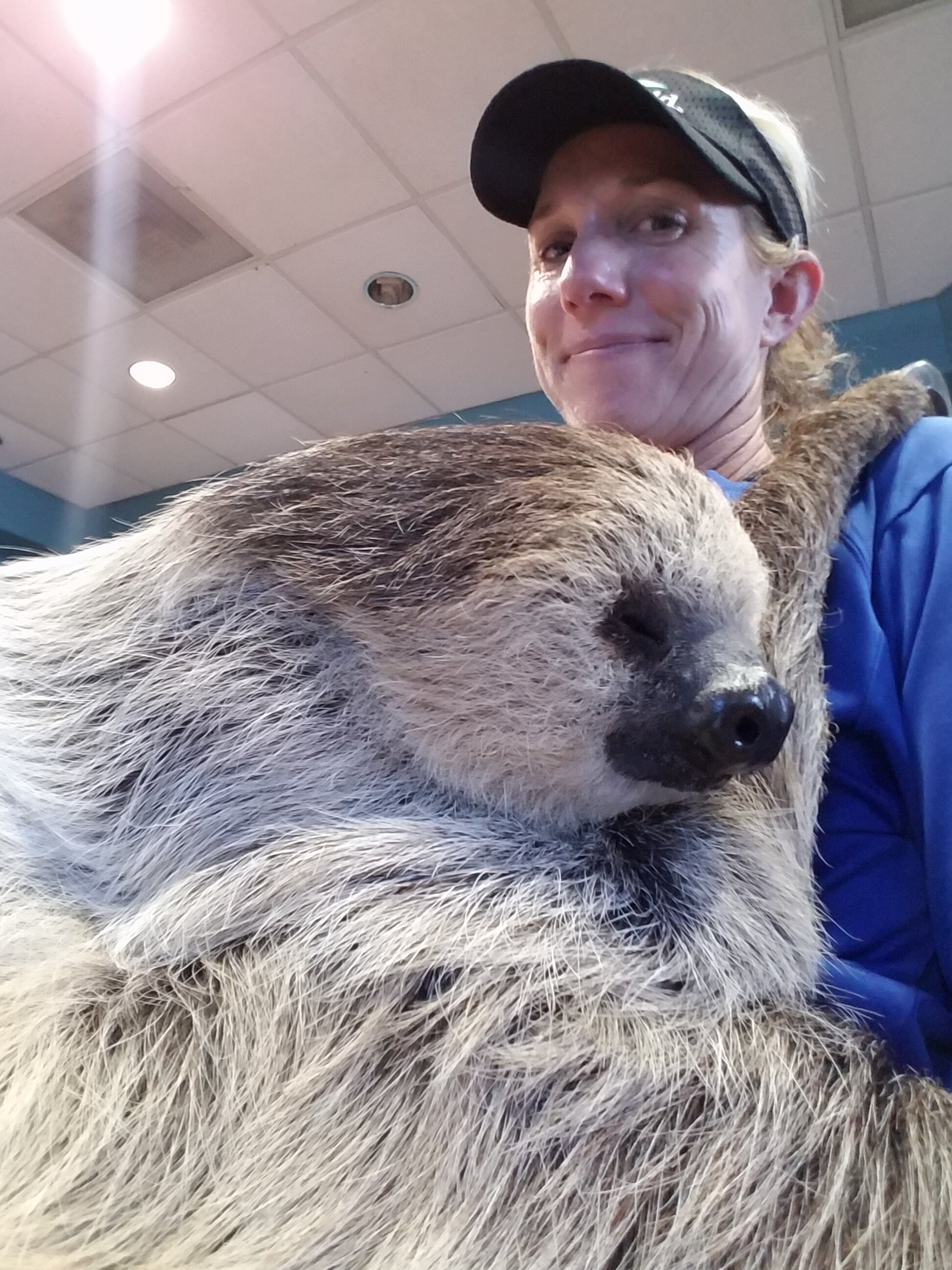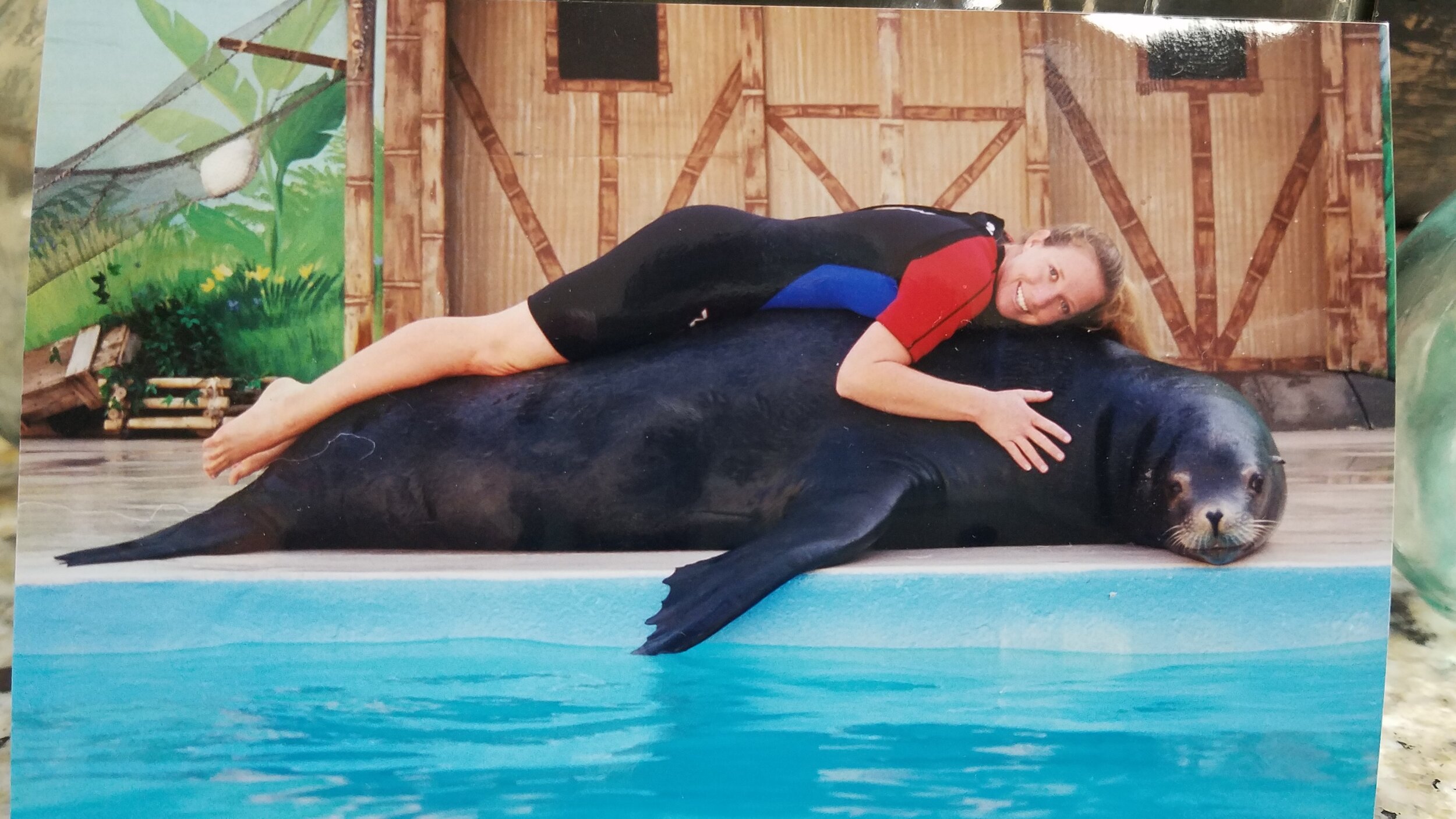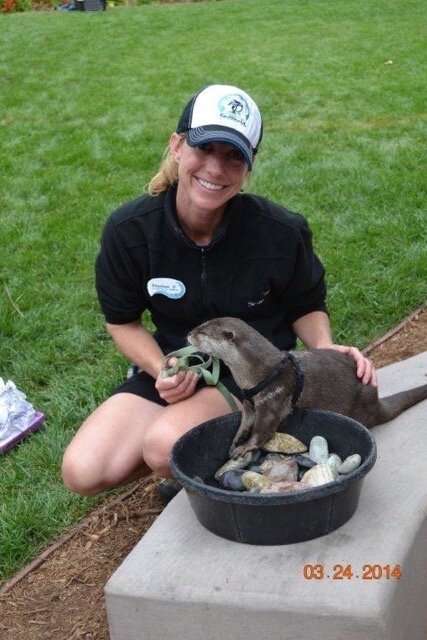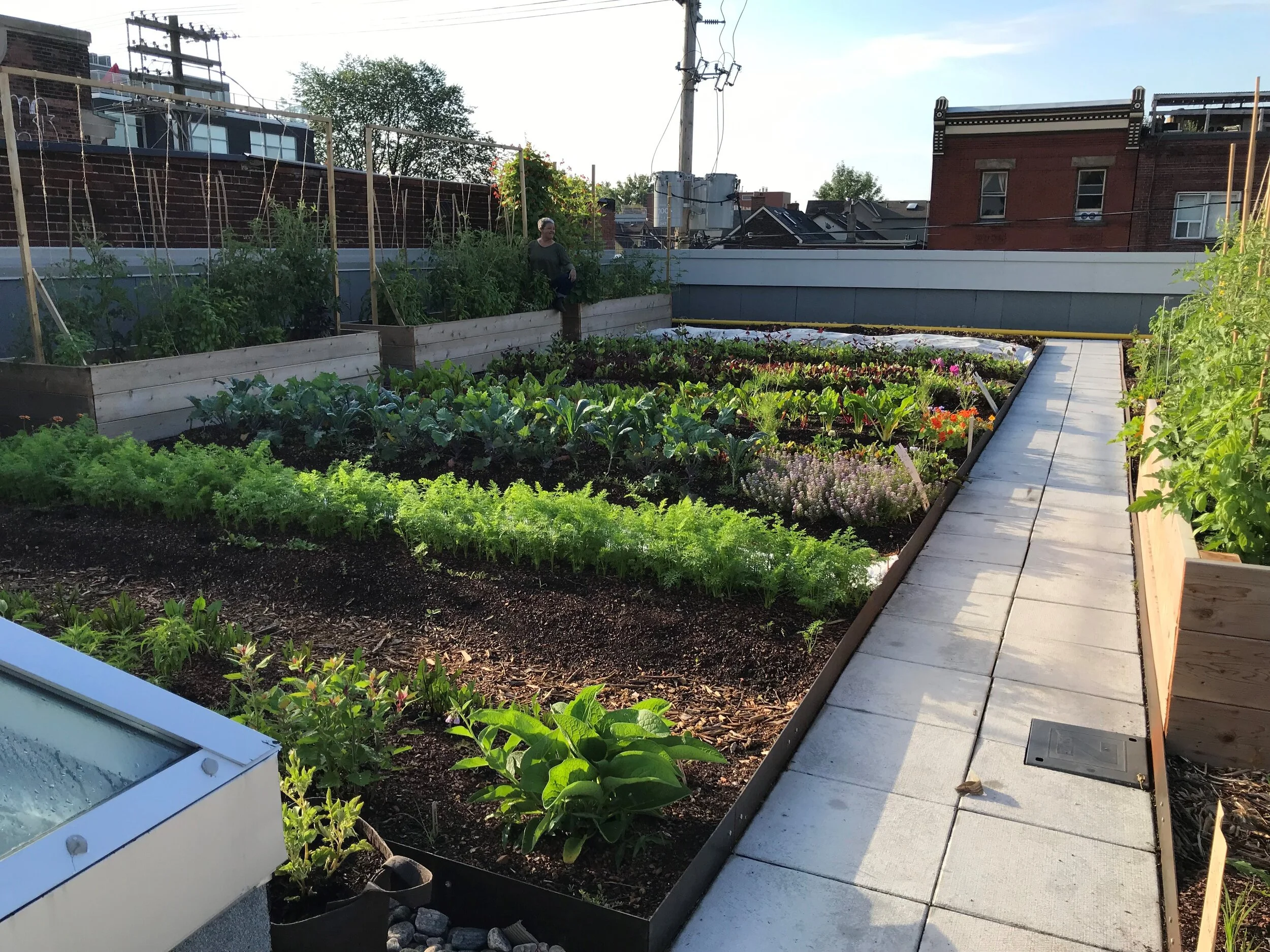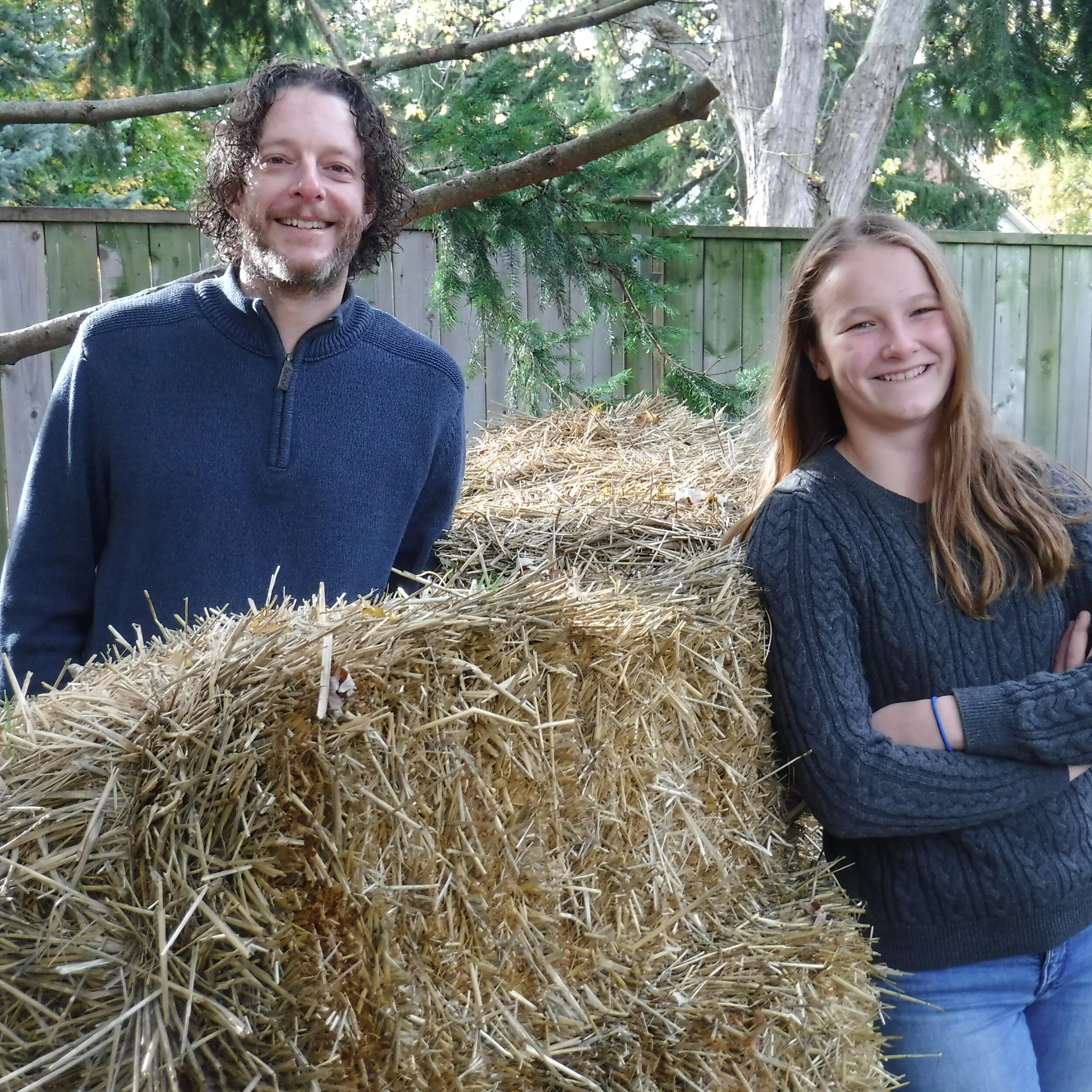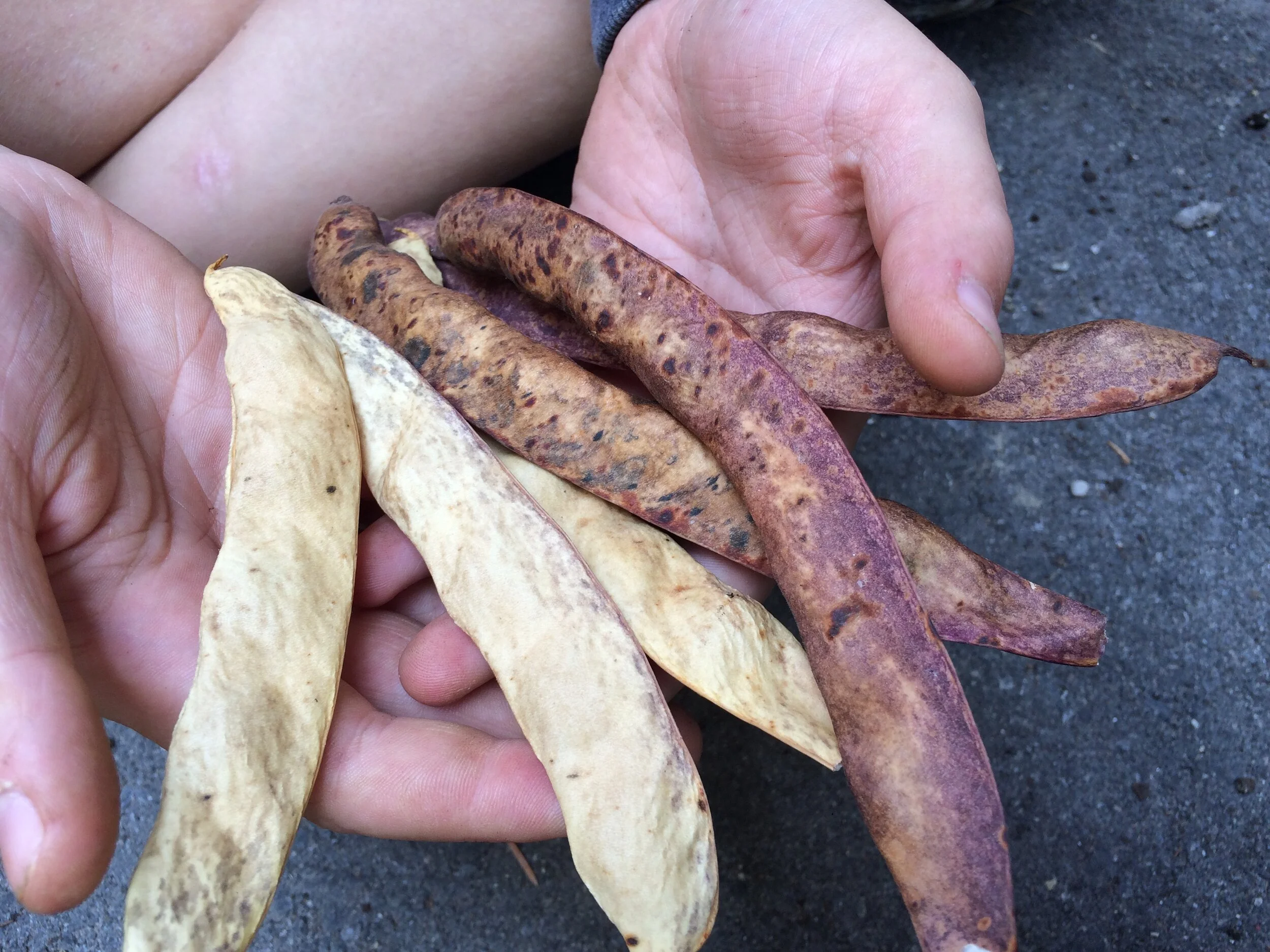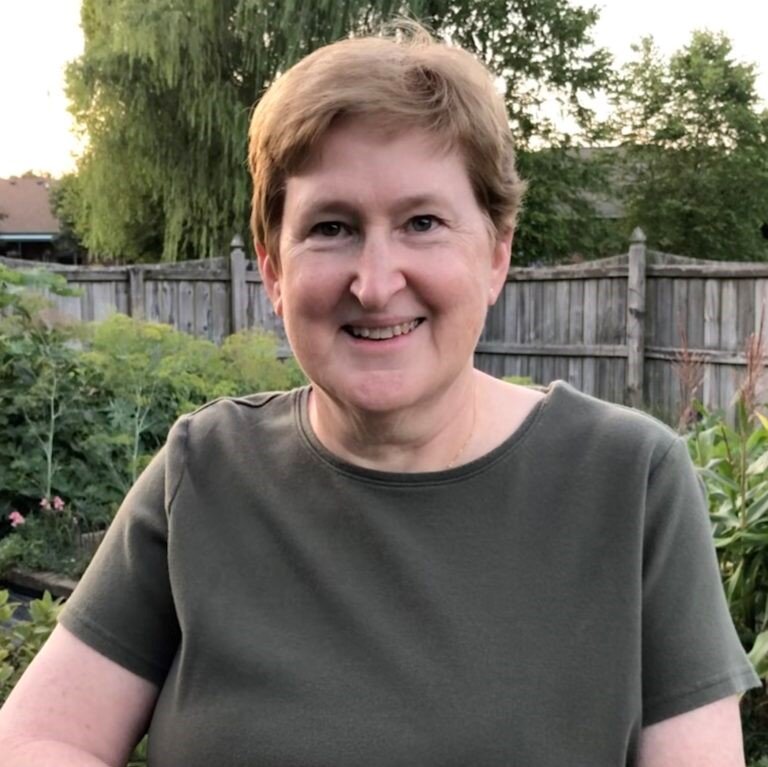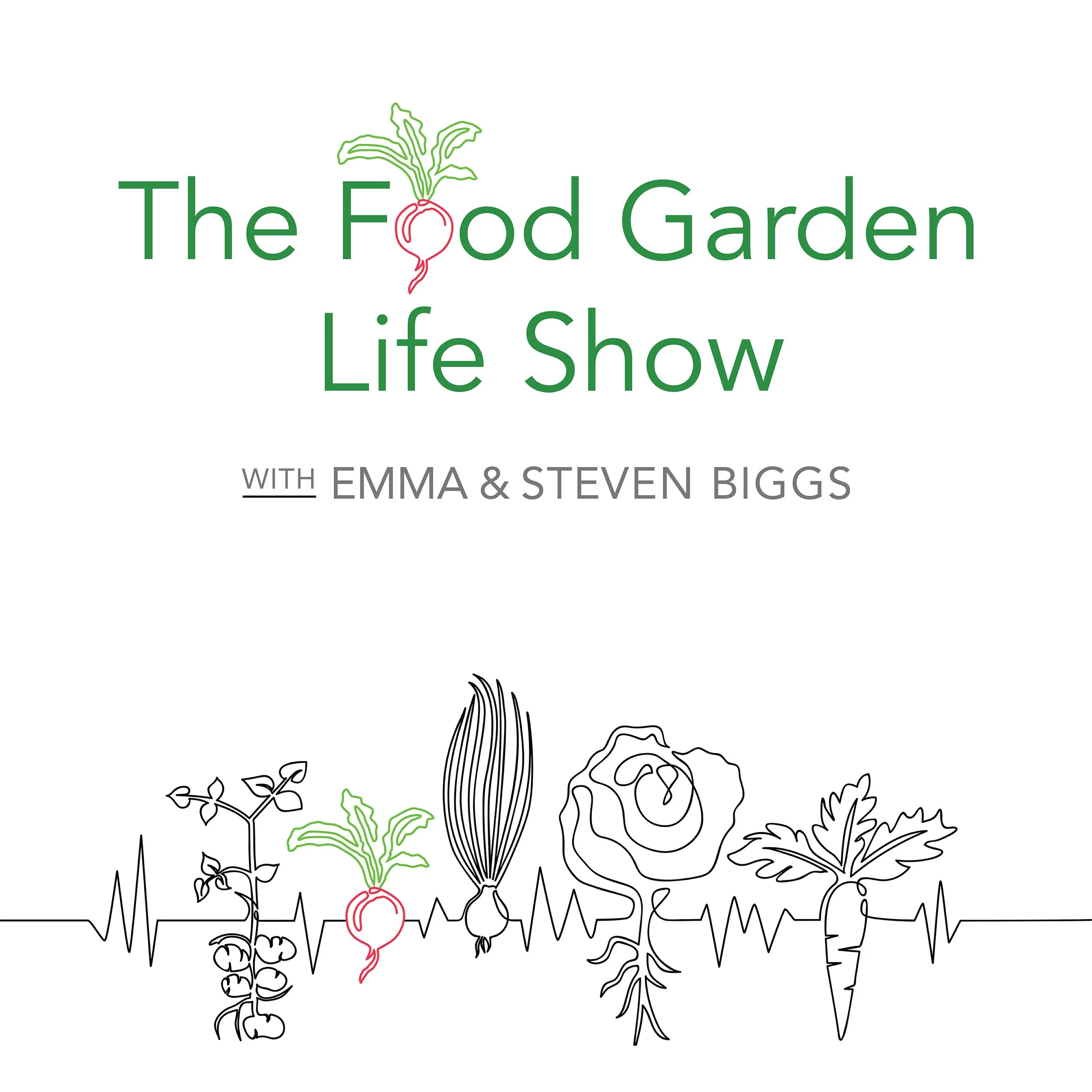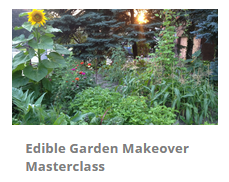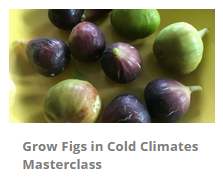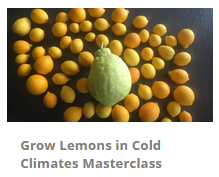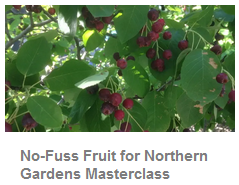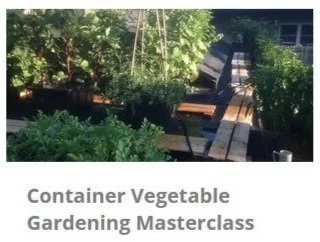Luay's Urban Farm and Kitchen
We talk with Luay, from Urban Farm and Kitchen in Toronto, about how he started growing food, his gardens, some favourite recipes, failure, and tips for new gardeners.
His day job in the engineering industry is hectic and includes lots of travel. Gardening and cooking are his way of unwinding.
Getting into Food Gardening
Luay currently grows in his backyard and at a municipal allotment garden.
But he didn’t grow up gardening. His interest in gardening was piqued by unusual vegetables he got through a CSA subscription.
Once his interest had been piqued, he started small—with a tomato plant on his balcony.
“Gardening is a hobby that turned into a passion.”
His interest in gardening grew into a passion. He now shares that passion on social media and his website.
His backyard includes raised beds, fruit trees, and an area to eat and entertain…but he admits that potted edible plants make their way into all parts of the yard.
“I’m trying to maximize every square inch possible.”
In the Kitchen
Luay loves to cook with what’s in season. As we talk, it’s fresh tomatoes.
The kitchen is his place to unwind.
“It’s also kind of cathartic, because it’s relaxing when you’re in the kitchen and you’re just spending time on cooking and everything else fades away.”
Failure in the Garden
Luay tells new gardeners that failure is part of being a gardener.
He aims to have backup options in case something doesn’t grow in his garden. One way to do that is to keep a few extra seedlings on hand in case things don’t go as planned.
“Failure is part of being a gardener.”
Having a succession of crops to plant throughout the year is another way that he rolls with the season, the growing conditions, and the challenges of a particular year.
“Every year is different; you roll with the punches.”
Tips for New Gardeners
He tells new gardeners to start small. He finds that herbs are a great way to start small.
“It’s important to pace yourself.”
Many new gardeners, he says, feel the need to grow everything from seed. He suggests buying transplants to start.
Growing Food and Urban Gardening with Kevin Espiritu
Kevin Espiritu, author of Field Guide to Urban Gardening and founder of Epic Gardening
In this episode that originally aired live on The Food Garden Life Radio Show, we talk with urban gardener, author, podcaster, and YouTuber Kevin Espiritu from California.
Espiritu, who did not grow up gardening, explains how, after studying business, he discovered gardening.
He made the garden—and teaching people to garden—his vocation. Espiritu is the founder of Epic Gardening.
Front Yard Garden
Espiritu converted his San Diego front yard into a garden. The 15 x 30 foot space is the only sunny location he has to garden. He thinks that the garden, with its 14 raised beds, has inspired neighbours to grow.
He’s in the process of moving…and is building a garden at his new, 1/3-acre property.
Gardening and Failure
Espiritu, who considers gardening to be an ongoing learning process, says failure is normal.
But he says that with gardening, it’s often necessary to wait for a year before trying again after a failure—so he documents his failures so that he can remember them and learn from them.
Field Guide to Urban Gardening: How to Grow Plants, No Matter Where You Live, by Kevin Espiritu
Field Guide to Urban Gardening
He says that he wrote his book, Field Guide to Urban Gardening, in a way to help people who have never gardened before.
Rather than telling people how to garden, he guides them through what to consider as they create a garden.
Tomato Talk Segment
In the Tomato-Talk segment, Emma talks about the harvest at Zawadi Farm, along with challenges and top varieties in her own test garden.
Jeff Quattrone grew up in South Philly where he says most yards had a fig tree.
Biggs-on-Figs Segment
Jeff Quattrone from New Jersey tells us about growing up in a family with a fig tree in south Philadelphia, where he says about 90% of the yards had a fig tree.
“My family tree is literally a fig tree.”
Jeff previously joined us on the podcast in June, 2020 to talk about his work in seed saving. Click here to hear that episode.
In Quattrone’s own family, his cousin Gregorio grew a fig tree that was brought from the family’s home town in Calabria.
“We always had figs.”
REWIND: Grow Fruit in Cold Climates, PART 2
In part 2 of a program first broadcast live on the radio show in 2018, we continue our chat about growing fruit in cold climates with Dr. Ieuan Evans, a forensic plant pathologist and a former Provincial Plant Pathologist for Alberta Agriculture.
Along with his work in plant pathology, Evans is passionate about growing fruit in cold climates.
In this segment, he talks about edible mountain ash, plums, pears, apples, damsons, and apricots. And we talk about how he grows figs in Edmonton.
“Growing fruit on the prairies is not a problem at all—you just have to take a new angle.”
Fruit Varieties for Cold Climates
Evans says there are many cold-adapted and delicious varieties of plums, apples, pears, and apricots suited to his zone.
But because he does not live in a fruit-producing region, it’s up to amateur growers to promote and share the varieties.
“I could take you to gardens here where the plums are superior to anything you could buy in the store.”
He notes that many people think sour cherries are inferior to the less cold-hardy sweet cherries. To that he says:
“ A sour cherry’s got all the flavour…It’s like comparing water to wine.”
Edible Mountain Ash
While mountain ash is normally grown as an ornamental tree, Evans has found and shared a columnar variety of mountain ash with sweet, edible fruit.
Grow Figs
Evans talks about his fig plants, which he grows indoors under a skylight over the winter.
Greenhouse
In addition to growing cold-adapted fruit varieties outdoors, Evans grows more tender crops, such as his ‘Red Haven’ peaches, in pots in his greenhouse.
Urban Farming to Grow Social Change
Toronto urban farmers Jessey Njau and Misha Shodjaee join us to talk about their journey into growing food and using food and farming as a tool for social change.
Zawadi Farm
Their farm, Zawadi Farm, began on land provided by a local garden centre.
They now farm Njau’s yard, other yards in their neighbourhood, as well as space at Toronto’s Downsview Park, which has land dedicated to urban agriculture.
(This year, Emma is helping manage the Zawadi Farm tomato crop at Downsview Park. Follow Emma on Instagram to see harvest pictures.)
The Path to Growing
Njau explains that he was deeply inspired by Vancouver urban farmer Michael Abelman, who uses urban farming as a way to build community and effect social change.
Looking Ahead
Success for Shodjaee and Njau is growing an interest in food production—not growing the amount of space they cultivate.
“We want to be able to grow farmers.”
Broken Crayons Still Colour
Njau explains the significance of the phrase on their sweaters, “Broken Crayons Still Colour.”
“Soil doesn’t ask you questions … I don’t care if you had a broken past.”
Summer Vegetable-Garden Check-in with Niki Jabbour
We chat with garden expert and author Niki Jabbour in Halifax, Nova Scotia to find out what’s new in her vegetable garden this summer, how things are growing, and for tips for new gardeners.
Her top advice for people who want to start growing food but haven’t started this year:
“There’s lots of things you can still plant, even in the coming weeks—so don’t think that you’ve missed the boat!”
Greenhouse versus Garden
Her greenhouse tomato plants are a good two weeks ahead—and far bigger than those growing in the garden
Straw-Bale Update
Niki grows in straw bales every year. They are doing well this year…the challenge in this hot summer is keeping them well watered
Fun Crops
Ever heard of ‘Itachi’ cucumber or ‘Black Kat’ pumpkin?
Succession Planting
Niki has lots of ideas for succession planting from this point onwards, including carrots, beets, and winter radishes
New Book
Niki’s new book, Growing Under Cover: Techniques for a More Productive, Weather-Resistant, Pest-Free Vegetable Garden, comes out in December 2020—and is available for pre-order now!
REWIND: Practical Ways to Grow Fruit in Cold Climates, PART 1
In this portion of a program first broadcast live on the radio show in 2018, we chat about growing fruit in cold climates with Dr. Ieuan Evans, a forensic plant pathologist and a former Provincial Plant Pathologist for Alberta Agriculture.
Along with his work in plant pathology, Evans is passionate about growing fruit in cold climates.
He talks about some of his favourite pear and apple varieties for cold climates—varieties that he says taste much better than store-bought apples or the apples from trees sold in local nurseries.
The Evans Cherry
When Evans first moved to Edmonton, Alberta, he was told that nothing would grow there.
Yet he found an incredibly fruitful cherry growing on a derelict property near town.
He propagated and shared that cherry widely. It’s known now as the Evan’s Cherry.
Challenging Conventional Wisdom
Evans says that to successfully grow fruit in a cold climate, it’s necessary to change the rules a bit.
He suggests:
grow in a bush instead of a tree form
graft at ground level instead of above ground
don’t plant on south-facing slope; instead, plant on north-west facing slopes
pay attention to rootstock (for example, he grafts pears onto cotoneaster)
Grafting Made Simple
Evans shares his tips to make grafting simple.
He says that grafting wax is unnecessary…and a sharp utility knife will work just fine.
A Passion for Slow Food Grows into a Rooftop Garden
We chat with Laura Luciano, a graphic designer from Long Island. She loves to find the stories behind locally produced food and the people who grow it.
Her passion for local food grew into her own blog, a column in Edible Long Island, and, eventually her involvement in the Slow Food movement.
Then it grew into an interest in growing her own food. So she created a rooftop garden.
Stories Behind Food
Luciano loves the stories behind the food she cooks.
“Food has a story and it’s supposed to be cherished and told.”
Along with the stories of food, she loves the seasonality of food—and enjoys cooking according to the what’s in season.
Slow Food
She talks about the Slow Food Ark of Taste, explaining that it’s, “A living catalogue of delicious and distinctive foods that are facing extinction.” A local example of a food that’s part of the Ark of Taste is the Long Island Cheese Pumpkin.
“It’s the opposite of fast food.”
Luciano is a Slow Food Governor for New York, and a board member for Slow Food USA.
A Rooftop Garden
“When I got started I did not have a green thumb at all.”
Luciano, who is new to gardening, is in her fifth year of growing. While her property is big enough for an in-ground garden, she is in a rural area with deer—so she decided to create a rooftop garden.
She says that she accepts failure, learns, and tries again.
Tips for other rooftop gardeners? She finds that the rooftop garden is extremely hot, so she creates shade by making plantings that include different plants with different heights.
“Every year I fail at something.”
What's New in the Garden, Q+A, Figs
In our mid-July garden check-in, we talk about what’s new in our garden.
Currants
The currant and gooseberry harvest
How to use currants
Did you know that red and black currants are pruned differently?
Rhubarb
Looking for a delicious rhubarb recipe? Emma shares her favourite
Carrots
Sharing our failures…we stressed out one of our carrot patches so badly that the carrot plants went to seed. Oops. Carrots have a 2-year life cycle—when they go to seed in the first year, that’s a sign they could use a bit more TLC
Beefsteak Tomato Harvest
The tomato harvest is coming along nicely, after some worry about blossom end rot
Fig Q+A
Why are my fig leaves drooping?
What’s going on with my fig leaves?
How do I make my fig into a bush?
Teaching Life Skills in a Garden Classroom
School Garden Educator Shannon Stewart
A Seedling
School garden educator Shannon Stewart thinks of herself as an emerging seedling amongst old growth forests.
Stewart, who teaches in San Diego, California, says that this is her second career—and as a “seedling” in the the field of school gardens, she often turns to others for inspiration and ideas.
It Started with a School Garden
She explains that her involvement in school gardens started when the principal at her son’s school approached her about helping to start a school garden.
That project opened the door to a big life change: She took the leap from working as an exotic animal trainer to becoming a school garden educator.
Stewart says that while it’s a big change, both roles involve understanding and caring for living things.
Life Skills
The garden classroom presents an opportunity to teach more than just how to grow plants. Stewart uses it to teach:
health and nutrition
science
critical thinking
teamwork
and even public speaking
“That is the most powerful part of garden education, is giving kids that authoritative power to make decisions on their own.”
Keep it Moving
Stewart talks about engaging students with a pollination-sequence play, enacted to the music Flight of the Bumblebee.
“I’m all about getting the kids moving outside because they do not need to sit there and listen to me talk for 30 minutes.”
Using Stories of Animals While Teaching in the Garden
Stewart says that students love it when she includes animal stories in the lessons.
For example, when teaching about Japanese beetles (and the Japanese beetle grubs that eat plant roots) she shares the story of how a dolphin she was training was fascinated by the colourful beetles that she showed it—and how the curious dolphin then ate a beetle!
REWIND: An Engineer Grows Figs in NJ
William Muzychko grows figs in New Jersey.
In a program first broadcast live on the radio show in 2018, we chat with Bill Muzychko of Bill’s Figs in Flemington, New Jersey.
Growing Figs in Containers
Muzychko grows over 180 varieties of figs—all in containers—and all in zone where they would not normally survive without winter protection.
Figs with Sub-Irrigation
Muzychko sets up his containers with a sub-irrigation system that provides the fig plants with a steady supply of water.
Building Community with a Brewery Rooftop Garden and CSA
Danette Steele, Farm Manager at Avling Kitchen & Brewery
We chat with Max Meighen, owner of Avling Kitchen & Brewery, and Danette Steele, the Farm Manager for the rooftop garden.
Rooftop Garden
Steele grows a wide variety of crops on the roof., including greens, tomatoes, herbs, flowers for pollinators—and “flavour crops.”
She explains that the flavour crops are used in the brewing process. A recent example is pineapple sage, which was infused in a local honey. That infused honey was then used in brewing.
Steele, who previously farmed in a rural setting in Nova Scotia, say that she is drawn to urban farming.
“Farming is in my blood.”
She explains that there is a strong community connection with the garden.
“I think that’s why it’s a lot of the urban farming that I’ve done has been exciting, because it just engages community.”
Avling Farm Box
Meighen talks about the Avling Farm box, which includes meat and produce. Half of the produce for the boxes comes from the rooftop garden, half from new and small farms in Ontario.
He believes in connecting the community with food producers. Earlier this year he hosted a meet-the-farmer night where customers mingled with farmers supplying Avling Kitchen & Brewery.
1/4 of the Avling rooftop garden
Creating Change with Fruit Trees
Virginie Gysel talks about transforming the grounds of a local church into an edible garden and founding TreeMobile.
Neighbourhood Church Garden
Virginie Gysel joins us to talk about transforming the grounds of a neighbourhood church into an orchard and food garden.
It started when she approached the church about growing vegetables on the property in exchange for looking after the flower gardens. She didn’t have anywhere sunny to grow tomatoes in her own yard.
It led to an orchard on a south-facing hill and lots of community engagement.
She gives bags of produce to church members, donates the harvest to those in need, as well as sharing the harvest amongst volunteers.
“I didn’t have anywhere to grow tomatoes.”
TreeMobile
Gysel founded the volunteer-run project TreeMobile that supplies food-bearing trees and shrubs at a low cost to home gardeners.
“Everyone is talking about food security, but I think we need to start planting for it.”
Gysel says that this self-supporting program also gives grants to schools, church groups, and community groups.
Designing Landscapes
Gysel loves her work in landscape design. When clients are interested, she likes to integrate edible plants.
“I just realized this is the most amazing job in the world.”
She shares some of her top choices for home gardeners thinking about growing fruit. Currants top the list.
“If you have a boring old hedge, why not rip it out and plant a hedge of currants.”
Blending Art and Garden Activism...and Jersey Tomatoes
Jeff Quattrone talks about seed libraries, the Jersey tomato, and creative ways to share messages about food and gardening.
We chat with Jeff Quattrone about his work bringing seed libraries to New Jersey, plant propaganda (not propagation!), and the Jersey tomato.
Quattrone is an artist, lifelong gardener, and marketing professional.
He founded LIbrary Seed Bank in 2014.
Library Seed Bank
Quattrone talks about his journey into seed saving and helping to set up seed libraries.
“The whole idea that food can go extinct was something that shocked me because I didn’t understand diversity.”
Jersey Tomatoes
He is so passionate about Jersey tomatoes that he has a page devoted to them on his website.
“I think I’ve grown just about every one of them and I love them all!”
Quattrone explains that the traditional Jersey tomato was bred to be a 10-ounce, round, red tomato because of the canning industry in New Jersey.
“Jersey tomatoes, they’re part of our zeitgeist.”
Garden Propaganda
As a marketing professional, he finds that people often have a negative impression of the word propaganda. He looks at the fine line between propaganda and branding—and talks about why he thinks garden propaganda is important.
Tomato and Food-Garden Q+A with Ontario Backyard Plant Growers
Q+A Day
We dig into tomato and food gardening questions from members of the Ontario Backyard Plant Growers group on Facebook.
The Ontario Backyard Plant Growers Facebook Group is a group that shares information about growing plants in Ontario. It's a passionate group with broad knowledge on propagating, growing and harvesting, and tools and amendments.
We Tackle Tomato Questions
Why do some tomato seedlings just stop growing?
If you had to pick three tomato varieties to grow this year, and only three, which would they be? (SPOILER ALERT…Emma picks 5 varieties!)
There are so many methods for staking and propping up tomatoes. Which one works best for you? If you had a small space - room for 6 or 8 indeterminate plants - what system would you use for the most production?
I Love tomatoes - one in particular: The Starfire and cannot find any seeds for it anywhere, anymore - It was not very big but it was Tough - it would give nice, fist-sized (woman fist that is) ... bright red, not too wet fruit I could freeze whole and eat in February in soup and sauce - Loved it! Where is now?
Is it helpful to pinch off some first flowers off tomato plants to promote growth?
How much sun do tomatoes REALLY need.. The minimum I seem to see is six hours direct sunlight but would it be worth it to still plant them if you don't have quite that much sun?
Which tomato varieties yield the most fruit?
Choosing Crops
What indoor food plant would you say gives you the biggest bang for the time and effort put in?
What are the best melon varieties for southern Ontario?
What are the best fruit-bearing shrubs for southern Ontario?
What are the first things you plant? What are the last you harvest?
My 3rd year asparagus has turned into 6-foot trees! I was told not to pick any asparagus until the 4th year....help
What plants do you recommend for succession cropping?
Suburban Farm and Sunken Greenhouse Build Community
Spring Creek Community Garden
Annalisa Pedraza joins us from Bozeman, Montana, where she manages the Spring Creek Community Garden.
“Right now we have 30 members and that feeds about 25 households.”
Spring Creek Community Garden was founded by Richard Weaver after he inherited 3 acres of land in the middle of a subdivision. He removed the grass to create an urban farm and a sunken greenhouse.
“We split it family style. Nobody has their own plot.”
The greenhouse is filled with fruit trees and bushes.
Unlike many community gardens, everything is shared. There are no individual plots; and members divvy up the harvest based on what they feel they have contributed.
Scroll down to the bottom of this page to see a video about Spring Creek Community Garden.
Growing New Gardeners
The gardeners hold a weekly potluck dinner, using garden produce. Pedraza finds that the social interaction is an important part of gardening.
While she’d love it if these get-togethers encourage people to become community-garden members, what she would really like is if they inspire people to make more community gardens.
“What we really hope is that they replicate that elsewhere.”
Annalisa’s approach to growing in based in permaculture. She has recently started her own business, Rising Crane Permaculture, to help other people grow food.
“I wasn’t inspired by the whole currant and gooseberry thing.”
Ways Gardeners Share
Bean seeds from our neighbour Joe
We’ve been talking a lot about our neighbor Joe over the past couple of days.
Joe and his wife, Maria, are amazing neighbours. They always stop to chat. They share their garden harvest. And they send cookies for the kids.
But the reason we’ve been talking about Joe these past couple of days is that Joe is an amazing gardener. We learn something new every time we drop by to visit. AND Joe shares with all the neighbourhood gardeners.
Bean Walls
There’s very little lawn in Joe and Maria’s back yard. It’s row up on row of tomato plants. (And Joe’s tomato seedlings are always miles ahead of ours in the spring.)
The yard is surrounded by a wall of pole beans. Joe shared his favourite bean seeds with us for our garden.
Steven posted about Joe’s beans the other day on social media as he explored how gardeners share, for an event called Garden Days.
Garden Days
In past years, Garden Days has been a celebration of gardens and gardening—letting people know about public gardens and organizations. There were garden-related events too.
This year, with COVID, the focus of Garden Days is celebrating the joys of gardens and gardening.
Start a Summer Vegetable Garden
not too Late to Grow Vegetables
We chat with Carol Michel and Dee Nash about starting a summer vegetable garden.
Michel and Nash are vegetable gardeners Indiana and Oklahoma who joined forces to produce The Gardenangelists podcast and share their love of gardening.
“I’m in zone 7, and she’s zone 5.”
Michel and Nash talk about how they got into vegetable gardening, and then share their tips for starting a vegetable garden in the summer. It’s not too late!
“It is not too late. There are plenty of vegetables that you can sow seeds for right now.”
Weave Habitat Restoration into Food Gardens
Not Mutually Exclusive
Ever wondered if growing food and and growing native plants are mutually exclusive?
Our guest Ryan Godfrey talks about his sixth-floor balcony garden where he weaves together edible and native plants—all in containers.
Habitat-Themed Containers
Godfrey’s balcony container garden includes habitat-themed containers:
Alvar container garden
Riverside container garden
Boulder container garden
Woodland container garden
Edible plants include woodland strawberries, Jerusalem artichoke, sweet grass, and Virginia mountain mint.
Godfrey also has an allotment garden plot where he grows both food and native plants. He says that his plot draws a lot of pollinators.
It Started with Acorns
In a journey that started with vacuuming acorns as a child, Ryan went on to study biology and evolutionary biology. He says this makes him a “plant nerd,” a gardener who learned about plants outside of a garden context. It colours his approach to gardening.
“Failure is a huge part of gardening. I encourage folks to document and learn from your failures.” Ryan Godfrey
Godfrey currently works with World Wildlife Fund Canada on a project called In The Zone, an initiative to build Carolinean habitat in Canada.
Nourish Community and People with Gardens—and Soup!
In a broadcast that originally aired live on The Food Garden Life Radio Show, we start by chatting with Susan Antler, the Executive Director of the Compost Council of Canada.
Susan talks about using gardening and food to make change, the Plant·Grow·Share a Row program and the Soupalicious festival. “Gardening can change the world,“ she says.
In Emma’s Tomato Talk segment, she talks about blue tomato varieties, tomato training methods, and transplanting tips.
In the Biggs-on-Figs segment, Steven is joined by author Helena Moncrieff, who shares the story of a Toronto gardener whose fig tree became an integral part of the neighbourhood. Moncrieff is the author of the book The Fruitful City.
Francesco’s Fig Tree
The Story of a Fig Tree that Brought Together a Community
Excerpt from The Food Garden Life Radio Show, June 2020
In the Biggs-on-Figs segment, Steven is joined by author Helena Moncrieff, who shares the story of a Toronto gardener whose fig tree became an integral part of the neighbourhood.
Moncrieff is the author of the book The Fruitful City.
Henena Moncrieff, author of The Fruitful City, tells the story of Francesco’s fig tree

